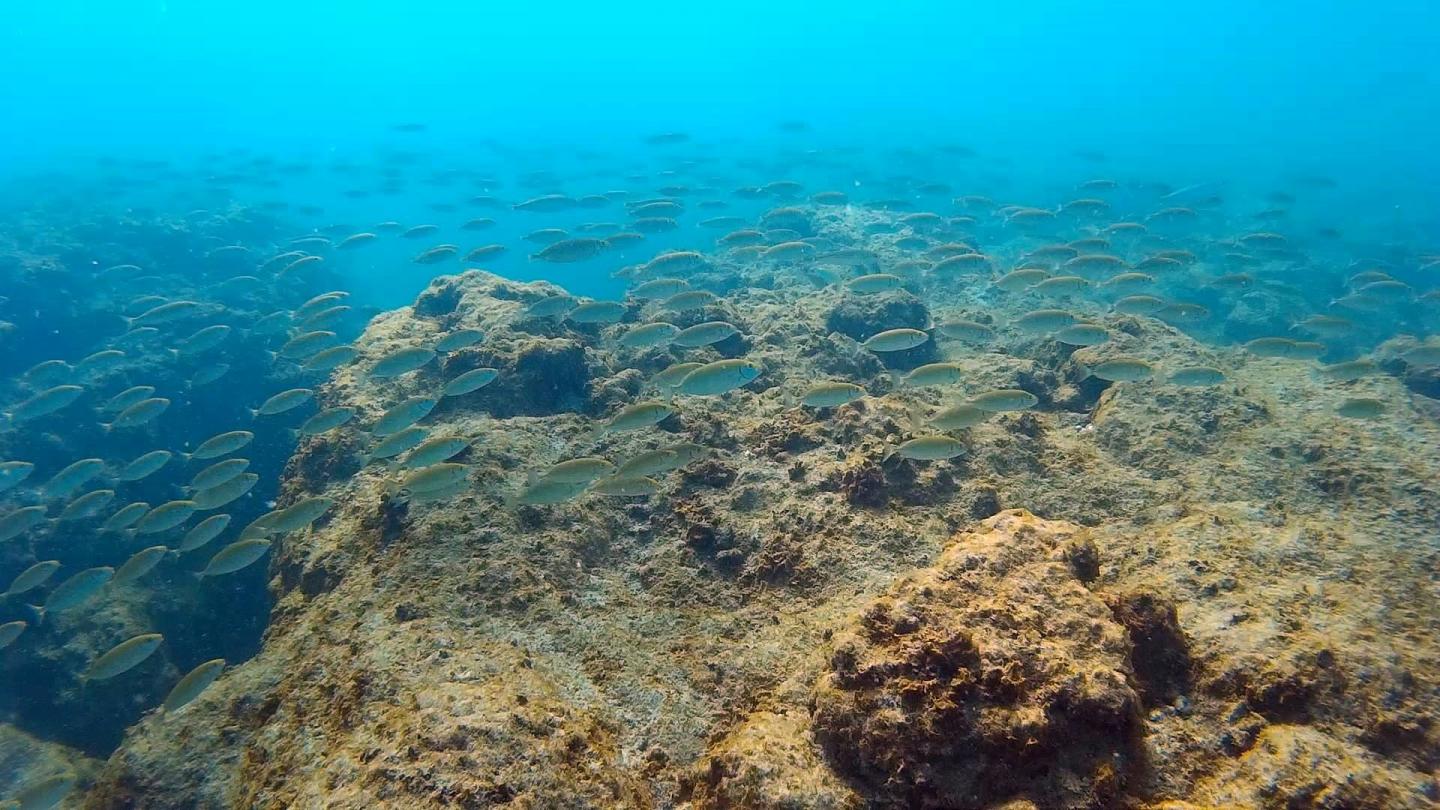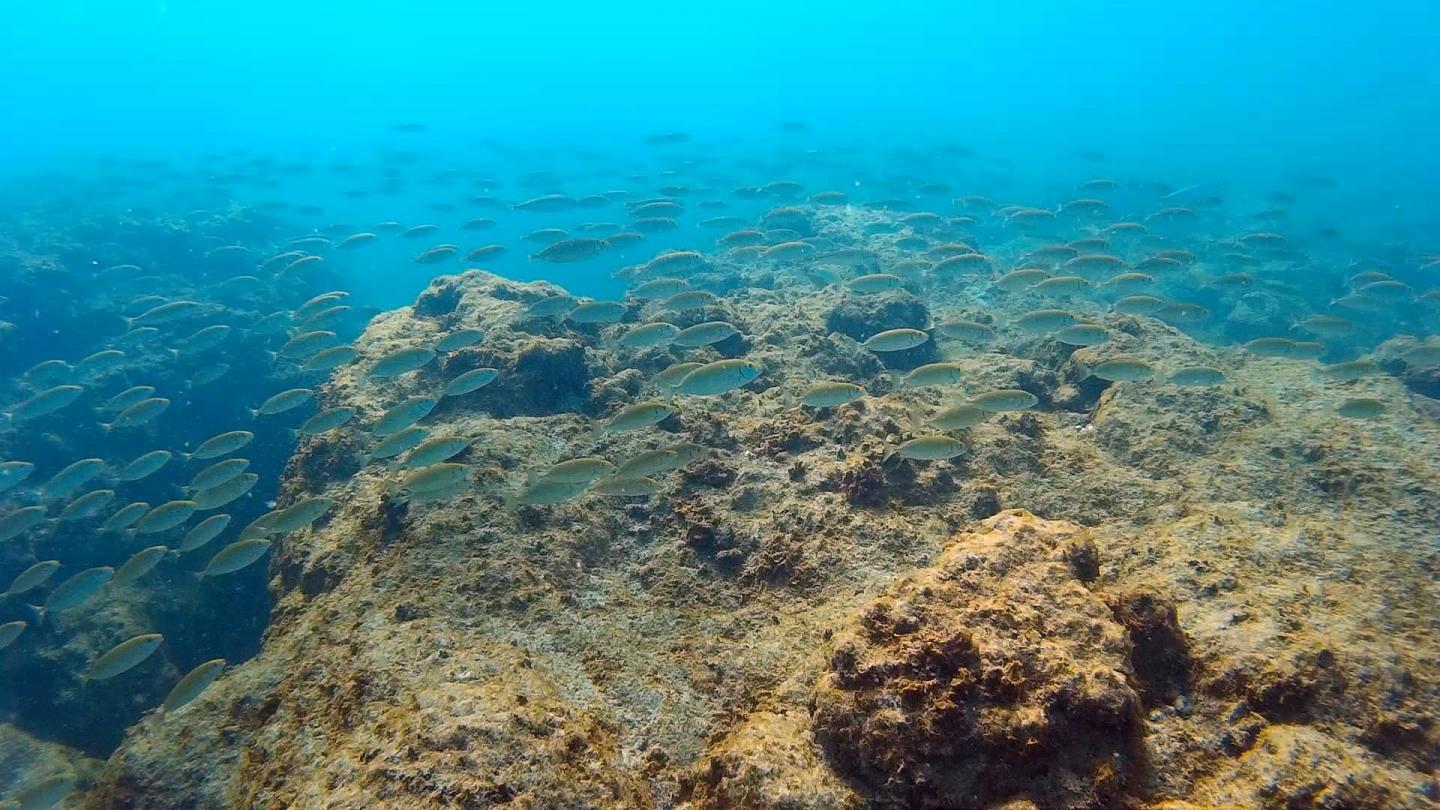
Credit: Z. Fayer.
Non-indigenous species (NIS) are harming indigenous species and habitats in the Mediterranean Sea, impairing potentially exploitable marine resources and raising concern about human health issues, according to a new Tel Aviv University study.
The 2015 expansion of the Suez Canal, one of the world's most important corridors of commerce, facilitated an influx of non-indigenous species into the Mediterranean Sea, according to Prof. Bella Galil of the Israel National Center for Biodiversity Studies at TAU's Steinhardt Museum of Natural History, the lead author of a study published last month in Management of Biological Invasions.
"The Mediterranean Sea is the most invaded marine basin in the world," says Prof. Galil. "The number of NIS greatly increased between 1970 and 2015. 750 multicellular non-indigenous species were recorded in the Mediterranean Sea, far more than in other European seas, because of the ever-increasing number of Red Sea species introduced through the Suez Canal. This raises concerns about the increasing introductions of additional NIS and associated degradation and loss of native populations, habitats and ecosystem services."
A slow reaction
The development and implementation of a management policy have been slow, despite a century of scientific documentation of marine bioinvasions in the Mediterranean Sea. The Convention for the Protection of the Marine Environment and the Coastal Region of the Mediterranean, part of the United Nations Environment Programme (UNEP) Regional Seas Programme, adopted an "Action Plan concerning species introductions and invasive species in the Mediterranean Sea" in 2003. But the UNEP has "shied away from discussing, let alone managing, the influx of tropical non-indigenous biota introduced through the Suez Canal. So far no prevention and management measures have been implemented," according to Prof. Galil and her associates.
In their new study, the authors present data that marine-protected areas in the eastern Mediterranean, from Turkey to Libya, have been overwhelmed by non-indigenous species and serve as veritable "hot spots" of bioinvasion. Biotic communities are already fragile, suffering from manmade stressors such as pollution and overfishing. The colonization of these communities by NIS redistributes nutritional resources, removes important actors and renders them more susceptible to extinction.
Eastern Mediterranean algae-dominated rocky habitats have been decimated by large populations of herbivorous fish introduced through the Suez Canal. The two voracious grazers, Siganus luridus and S. rivulatus, have transformed lush rocky reefs into "barrens," dramatically reducing habitat complexity and altering the community structure and food web. Within 30 years, a small Red Sea mussel has replaced the native mytilid along the entire Mediterranean coast of Israel, forming dense nearly mono-specific species "carpets."
A hope for effective intervention
The authors of the study led a discussion on effective management of non-indigenous species introductions into the Mediterranean Sea at a EuroMarine workshop that took place in Ischia, Italy, in 2016. The discussion resulted in the "Ischia Declaration" that laid down principles for an effective, science-based, transboundary management. The declaration was approved by the general assembly of EuroMarine, a network of 73 research institutions and universities, funded by the European Union.
"We hope that this new research will be used to construct a science-based effective management of marine bioinvasions, and prevent, or at least minimize, the influx of additional non-indigenous species into the Mediterranean," says Prof. Galil. "Time will tell whether these aims are achieved or legislators and management continue to put off confronting this difficult issue and pass the environmental, economic and social burden to future generations."
The researchers are currently investigating pollution and other NIS-related factors.
###
Tel Aviv University (TAU) is inherently linked to the cultural, scientific and entrepreneurial mecca it represents. It is one of the world's most dynamic research centers and Israel's most distinguished learning environment. Its unique-in-Israel multidisciplinary environment is highly coveted by young researchers and scholars returning to Israel from post-docs and junior faculty positions in the US.
American Friends of Tel Aviv University (AFTAU) enthusiastically and industriously pursues the advancement of TAU in the US, raising money, awareness and influence through international alliances that are vital to the future of this already impressive institution.
Media Contact
George Hunka
[email protected]
212-742-9070
@AFTAUnews
############
Story Source: Materials provided by Scienmag





